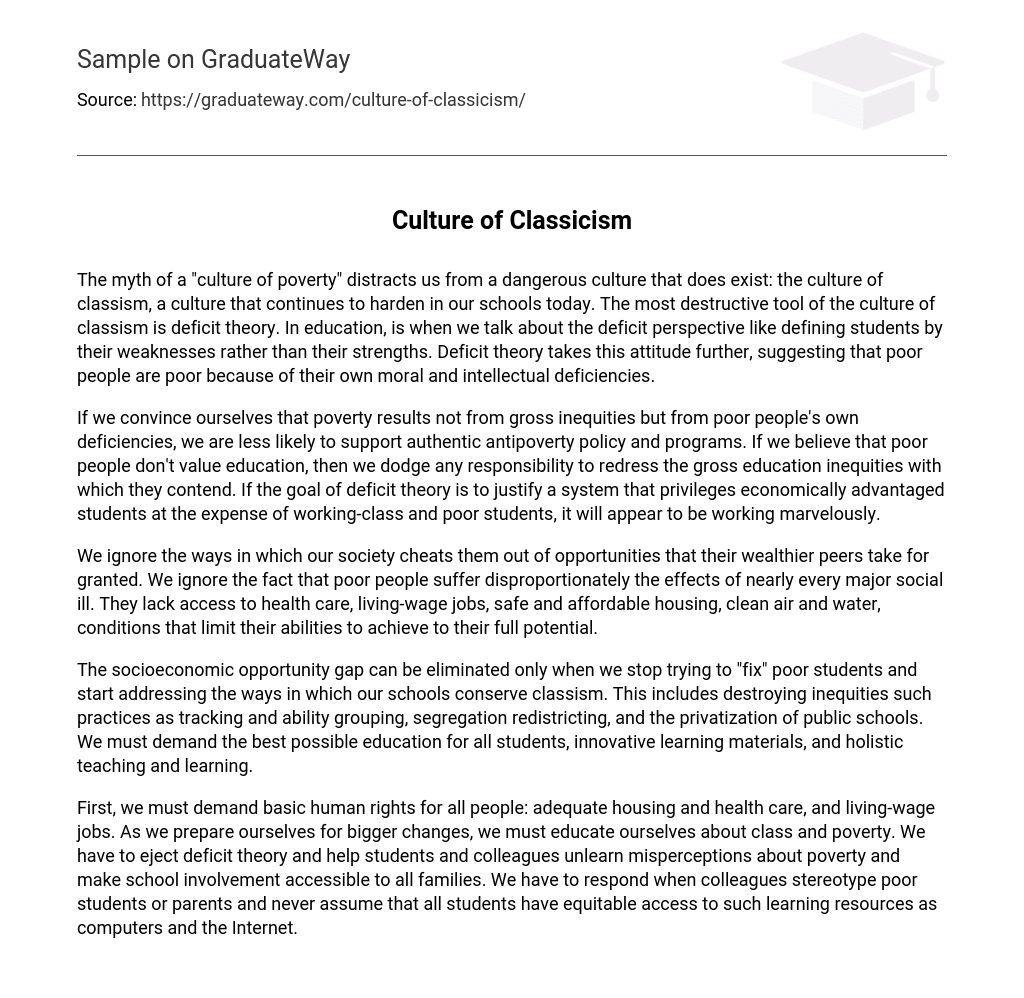The myth of a “culture of poverty” distracts us from a dangerous culture that does exist: the culture of classism, a culture that continues to harden in our schools today. The most destructive tool of the culture of classism is deficit theory. In education, is when we talk about the deficit perspective like defining students by their weaknesses rather than their strengths. Deficit theory takes this attitude further, suggesting that poor people are poor because of their own moral and intellectual deficiencies.
If we convince ourselves that poverty results not from gross inequities but from poor people’s own deficiencies, we are less likely to support authentic antipoverty policy and programs. If we believe that poor people don’t value education, then we dodge any responsibility to redress the gross education inequities with which they contend. If the goal of deficit theory is to justify a system that privileges economically advantaged students at the expense of working-class and poor students, it will appear to be working marvelously.
We ignore the ways in which our society cheats them out of opportunities that their wealthier peers take for granted. We ignore the fact that poor people suffer disproportionately the effects of nearly every major social ill. They lack access to health care, living-wage jobs, safe and affordable housing, clean air and water, conditions that limit their abilities to achieve to their full potential.
The socioeconomic opportunity gap can be eliminated only when we stop trying to “fix” poor students and start addressing the ways in which our schools conserve classism. This includes destroying inequities such practices as tracking and ability grouping, segregation redistricting, and the privatization of public schools. We must demand the best possible education for all students, innovative learning materials, and holistic teaching and learning.
First, we must demand basic human rights for all people: adequate housing and health care, and living-wage jobs. As we prepare ourselves for bigger changes, we must educate ourselves about class and poverty. We have to eject deficit theory and help students and colleagues unlearn misperceptions about poverty and make school involvement accessible to all families. We have to respond when colleagues stereotype poor students or parents and never assume that all students have equitable access to such learning resources as computers and the Internet.





